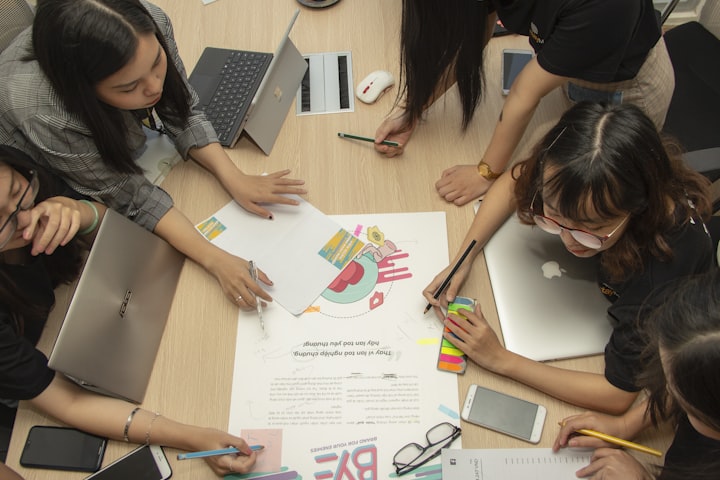The Importance of Science for Children
The Importance of Science for Children

Science is an essential part of our daily lives, from the technology we use to the food we eat. It is the study of the natural world and the laws that govern it, and it helps us understand the world around us. As such, science is an important subject for children to learn about, as it helps them develop critical thinking skills, encourages curiosity and creativity, and prepares them for a world that is increasingly reliant on science and technology.
Encouraging curiosity and creativity
Children are naturally curious and have a natural desire to explore and learn about the world around them. Science provides an opportunity for children to explore these interests and to ask questions about the natural world. By encouraging children to be curious about science, we can help them develop a love of learning that will stay with them throughout their lives.
Science also fosters creativity by encouraging children to think outside the box and come up with new ideas. It allows them to experiment and explore, to try new things, and to learn from their mistakes. By providing children with the opportunity to be creative in science, we can help them develop important problem-solving skills that can be applied to other areas of their life.
Developing critical thinking skills
Science requires observation, experimentation, and analysis, all of which help children develop critical thinking skills. They learn to ask questions, make hypotheses, and draw conclusions based on evidence. This type of thinking is essential in all areas of life, from personal relationships to careers in science and beyond.
By encouraging children to develop critical thinking skills in science, we can help them become better problem-solvers and decision-makers. They learn to approach problems systematically and to use evidence to develop solutions. These skills can be applied to other areas of their life, such as decision-making in personal relationships, problem-solving in the workplace, and navigating complex issues in society.
Preparing for a STEM-based Future
Science, technology, engineering, and math (STEM) are all essential fields for the future, and science learning is the foundation for all of these subjects. By developing a strong foundation in science, children are better prepared for future STEM-related careers. These careers are in high demand and offer opportunities for growth and innovation.
STEM jobs are projected to grow at a faster rate than non-STEM jobs, and they often pay higher salaries. By encouraging children to learn about science, we can help prepare them for the jobs of the future and give them the tools they need to succeed in a rapidly changing world.

Encouraging Science Learning in Children
Now that we have established the importance of science learning for children, the question arises: how can we encourage science learning in children? There are several strategies that parents, teachers, and caregivers can use to support children’s interest in science.
1: Make it hands-on
Children learn best through hands-on experiences. Provide them with opportunities to experiment, observe, and explore the world around them. This can include conducting simple experiments at home, visiting science museums, or participating in science fairs.
2: Ask questions
Encourage children to ask questions about the natural world and to explore their interests. Help them develop their curiosity by asking open-ended questions that encourage them to think about the world around them. This can include questions like “Why do you think that happens?” or “How could we find out more about that?”
3: Provide resources
Provide children with access to books, videos, and other resources that help them learn about science. This can include age-appropriate science books, documentaries, and online resources that provide information about different scientific concepts and topics.
4: Emphasize the real-world applications
Help children understand how science is relevant to their daily lives. Talk to them about how scientific discoveries and inventions have impacted our world and how they can make a difference in the world through science.
5: Encourage collaboration
Science is often a collaborative effort. Encourage children to work together on science projects and experiments, and to share their ideas and findings with others. This can help them develop teamwork skills and learn from one another.
6: Be a role model
Children look up to adults as role models. Show your own interest in science and share your own experiences with them. This can include talking about your own career in science, sharing interesting science news, or conducting science experiments together.
7: Make it fun
Above all, science learning should be fun. Encourage children to explore science in a way that is engaging and enjoyable for them. This can include incorporating games and activities into science learning or finding ways to make science learning a fun and exciting experience.

Overcoming Barriers to Science Learning in Children
While science learning is essential for children, there are several barriers that can prevent them from fully engaging in this field. These barriers can include social, economic, and cultural factors, as well as individual differences in learning styles and abilities. In this chapter, we will explore some of the barriers to science learning in children and discuss strategies for overcoming them.
1: Lack of resources
One of the biggest barriers to science learning is a lack of resources. Many schools and families do not have access to quality science resources, such as science labs or science books. This can limit children’s ability to explore science and develop their interests in this field.
To overcome this barrier, parents and educators can look for affordable resources, such as free online science videos and experiments, or seek out community resources such as science museums or science clubs. Additionally, parents can advocate for increased funding for science education in schools and work with educators to develop science curricula that are engaging and accessible to all children.
2: Stereotypes and biases
Stereotypes and biases can also be a barrier to science learning. Children from certain ethnic, racial, and socioeconomic backgrounds may feel excluded or discouraged from pursuing science due to these stereotypes and biases.
To overcome this barrier, parents and educators can work to promote diversity and inclusion in science. This can include highlighting the contributions of scientists from diverse backgrounds, providing opportunities for children from different backgrounds to work together on science projects, and addressing stereotypes and biases in the classroom by providing positive role models, and creating a safe and inclusive learning environment.
3: Limited exposure
Limited exposure to science can also be a barrier to science learning. Children who do not have opportunities to explore science may not develop an interest in this field.
To overcome this barrier, parents and educators can provide children with opportunities to explore science in a variety of ways. This can include encouraging them to participate in science fairs, attending science museums, or conducting simple science experiments at home. Additionally, parents and educators can look for ways to integrate science into other subjects, such as math or literature, to help children see the connections between different fields of study.
4: Learning differences
Children with learning differences may also face barriers to science learning. These children may require different types of instruction or accommodations to fully engage in science.
To overcome this barrier, parents and educators can work with children to identify their individual learning styles and provide accommodations as needed. This can include providing visual aids, providing extra time for assignments, or using hands-on activities to help children engage with science concepts.
If you are looking for a way to make science learning fun and engaging for your child, consider MEL Science. MEL Science offers a unique subscription service that provides science experiments and hands-on learning materials delivered straight to your door every month.
With MEL Science, your child can explore the world of chemistry and physics through exciting experiments that are both educational and entertaining. The experiments are designed to be safe and easy to conduct at home, and each kit comes with detailed instructions and explanations of the science behind the experiment.
MEL Science is a great way to encourage your child’s curiosity and creativity and to help them develop a love of science that will stay with them throughout their lives. So why not give the gift of science to your child today with MEL Science?
Click this link to get a discount: https://imp.i328067.net/21K2XM
In conclusion, science learning is essential for children’s personal growth and development, as well as for the future of our society. By encouraging children to explore science, we can help them develop a lifelong love of learning, foster curiosity and creativity, and prepare them for a world that is increasingly reliant on science and technology.
However, there are several barriers that can prevent children from fully engaging in science learning, such as a lack of resources, stereotypes and biases, limited exposure, and learning differences. To overcome these barriers, we can provide children with access to quality science resources, promote diversity and inclusion in science, provide opportunities for exploration and hands-on learning, and provide accommodations for individual learning styles.
It is our responsibility as parents, educators, and caregivers to ensure that all children have access to quality science education and the resources they need to succeed in this field. By doing so, we can help create a more equitable and inclusive society, and prepare the next generation of scientists and innovators to make a positive impact on the world. Science is not just a subject to be learned in school, but a way of thinking and exploring the world around us. By encouraging children to engage in science learning, we can help them develop the critical thinking skills, problem-solving abilities, and creativity needed to make a difference in the world.





Comments
There are no comments for this story
Be the first to respond and start the conversation.